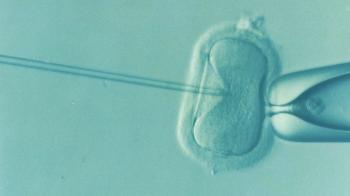Graves' disease with eyes sticking out, major cause of hyperthyroidism...There are three to eight times more women
May 25, 2025
|
The name Graves'disease comes from the name of Robert James Graves, an English physician who first reported it in 1835. In Europe, it is commonly referred to as Basedow's disease, which was influenced by Karl Adolf von Basedow of Germany, who published a paper in 1840 'Ocular Tissue Hypertrophy'.
Professor Cho Yoon-jung of the Department of Endocrinology at the Catholic University of Korea's Incheon St. Mary's Hospital said, `If not treated early, the symptoms of Graves' disease can worsen and lead to various complications, so special attention is needed.'
◇The disease that causes hyperthyroidism...Smoking increases the risk of developing the disease by 3.3 times
Graves' disease is usually caused by broken autotolerance to thyroid antigens due to environmental factors in patients with genetic susceptibility. Genetic and environmental factors are presumed to influence together. In particular, smoking, iodine intake imbalance, stress, and infection are considered major triggers. Of these, smoking is an established risk factor for Graves' disease. Smokers have about 3.3 times higher risk than non-smokers, and the risk is reported to decrease several years after quitting smoking.
A typical symptom of Graves' disease is ocular proliferation. This is caused by excessive secretion of thyroid hormone, which causes the tissue around the eyeball to become enlarged. In addition, you feel hot and sweat a lot due to hyperthyroidism, palpitations, tremors, fatigue, sleeplessness, nervousness, weight loss, itching, frequent bowel movements and diarrhea. Women sometimes have excessive menstruation symptoms. Symptoms usually appear slowly over several weeks or months, and in some cases, they appear suddenly, so it should be carefully examined.
Although it can occur in all age groups, 85% of all patients occur between the ages of 20 and 60, and it is known to be three to eight times more common in women.
Some confuse Graves' disease and thyroid poisoning with the same meaning, but they are truly different diseases. Thyroidism refers to a condition in which thyroid hormone increases in the blood regardless of the causative disease, resulting in various clinical symptoms in the peripheral tissues exposed to it. Graves' disease, on the other hand, is a representative causative disease that causes hyperthyroidism.
Professor Cho Yoon-jung said "The most common case of thyroid poisoning is hyperthyroidism. However, it is important to set the direction of treatment through accurate diagnosis as the clinical course is different and the treatment method is different between cases caused by hyperthyroidism and cases not accompanied by it.'
◇Initially, medication...Consider radioisotope therapy or surgery in case of recurrence
The treatment of Graves' disease is divided into drug treatment (anti-thyroid drugs), isotope treatment (radioactive iodine), and surgical treatment. In the early stages, drug treatment administering anti-thyroid drugs is mainly performed. It usually lasts 12 to 24 months, and it is known that 40 to 70% of patients are cured after treatment. However, if you do not take the drug steadily, you should take the drug steadily as it may not be cured or recur even after treatment. It also increases the cure rate of Graves' disease by administering a long-term low-dose anti-thyroid drug for more than 5 to 10 years.
If antithyroid drug treatment does not work or recur, radioactive isotope treatment may be considered. Since the radiation exposure is relatively small, there are few side effects except for pregnant women or nursing patients. However, hypothyroidism may occur after the procedure, and in this case, thyroid hormone drugs are administered.
Professor Cho Yoon-jung said, `If there is insufficient response to long-term anti-thyroid drug treatment, there are side effects of drugs, or if thyroidoma increases and compresses surrounding tissues, appropriate methods may be considered for isotope treatment or surgery"In the case of surgery, about 5-10% recurrence occurs, and about 20-30% of hypothyroidism occurs, so thyroid hormone drugs may have to be administered."
Lifestyle management is important to prevent Graves' disease. Smoking is a major cause of increasing the risk of developing an outbreak. You must quit smoking. It is recommended to maintain an appropriate amount of iodine intake. It is also necessary to reduce stress and maintain a regular life.
Professor Cho Yoon-jung said, `Graves' disease is an important disease for early treatment, and if symptoms appear, you should visit a hospital immediately for examination"It is of paramount importance to maintain a healthy thyroid gland through regular health checkups and lifestyle management."
|
This article was translated by Naver AI translator.















